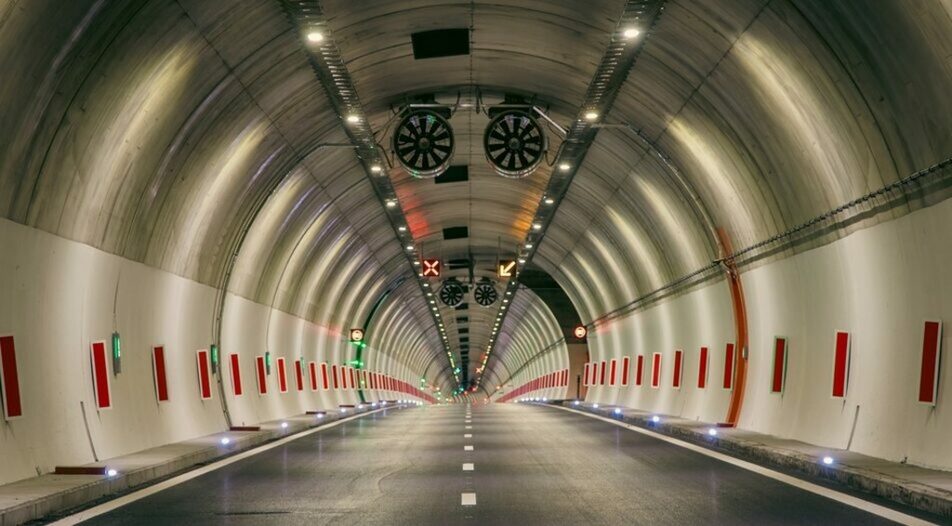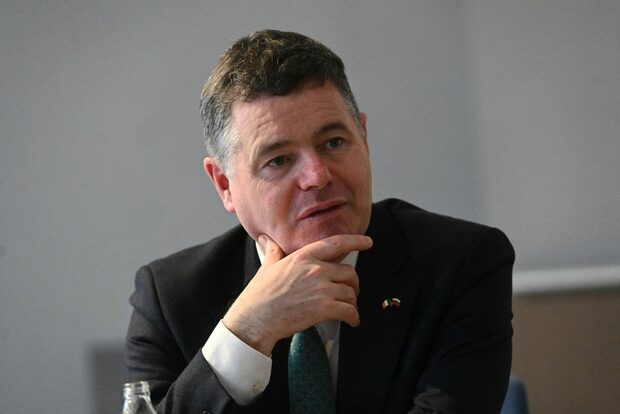Last week the European Public Prosecutor's Office (EPPO) started a new investigation in Bulgaria, targeting the construction of the Zheleznitsa Road Tunnel, the most expensive infrastructure project recently commissioned by the country. The project, with a total cost of 185 million levs (94.4 million euro), 85% of which was financed by EU funds, is under scrutiny for the suspected transfer of 11 million levs to shell companies, subsequently withdrawn by individuals with a criminal background, as detailed in an EPPO's press release.
"Searches are being conducted to gather evidence related to embezzlement, misuse of European funds, and money laundering," according to a statement from Laura Kövesi's office. The project's main contractor, a consortium named AM Struma Tunnel 2018, comprises GP Group, Global Construction (recently acquired by Glavbolgarstroy), and Via Plan.
Unofficial sources told Capital Weekly that searches were carried out at the offices of these companies. However, the specific entity allegedly involved in the questionable transfer of 11 million levs remains unclear. The press release highlights that these transfers occurred "in an extremely short timeframe, to shell companies, leading to significant cash withdrawals by individuals with criminal records."
When approached for a comment, the director of GP Group, Stefan Totev, asserted that the withdrawn funds were not linked to their company. Shortly thereafter, GP Group released a statement declaring that they are not under investigation. Nonetheless, during the investigation, GP Group granted "full cooperation to law enforcement authorities, providing all requested documents."
Linked to railway tenders
The investigation also touches upon connections to railway tenders, where "the same companies and individuals" are under scrutiny in another case involving a 5 million levs transaction with shell companies. This possibly pertains to the same entities withdrawing funds from contracts for the construction of Kostenets - Septemvri and Orizovo - Mihailovo railway sections. Despite repeated requests for comment by Capital Weekly to the National Railway Infrastructure Company and the EPPO, updates on this case have yet to be disclosed.
The Zheleznitsa Tunnel project commenced with the signing of a 185 million levs contract with GP Group in February 2019, and construction works began in October 2019. The then director of the government's Road Infrastructure Agency, Georgi Terziyski, stated that the project was progressing as planned, with expectations to complete the entire Struma motorway, of which the tunnel is part, by 2027.
However, the emergence of two landslides affecting the Struma motorway route in late 2022 posed new challenges. The Ministry of Regional Development approved amendments to the project, mandating the construction team to reinforce the landslides at the state's expense. Initially estimated at 74 million levs excluding VAT, the cost of reinforcing the landslides ultimately escalated to 90 million levs excluding VAT, leading to delays and temporary obstruction of construction works around the Zheleznitsa Tunnel.
The EPPO investigation highlights a potentially broader issue of financial impropriety in infrastructure projects. The contractors selected in the two separate tenders (the Zheleznitsa Tunnel and the railway sections) are different. Therefore, there is something that has prompted individual construction companies to transfer millions into the same hollow accounts and not care what happens to them. Something has caused the entire state system to turn a blind eye until Laura Kövesi decided to look for the missing millions. In 2021, the then Minister of the Interior, Boyko Rashkov, revealed how millions disbursed by the government for the construction of the Hemus motorway were withdrawn in cash. We can only guess whether the shell companies in the EPPO investigation are part of the same or a parallel scheme who the ultimate recipient is.
Last week the European Public Prosecutor's Office (EPPO) started a new investigation in Bulgaria, targeting the construction of the Zheleznitsa Road Tunnel, the most expensive infrastructure project recently commissioned by the country. The project, with a total cost of 185 million levs (94.4 million euro), 85% of which was financed by EU funds, is under scrutiny for the suspected transfer of 11 million levs to shell companies, subsequently withdrawn by individuals with a criminal background, as detailed in an EPPO's press release.
"Searches are being conducted to gather evidence related to embezzlement, misuse of European funds, and money laundering," according to a statement from Laura Kövesi's office. The project's main contractor, a consortium named AM Struma Tunnel 2018, comprises GP Group, Global Construction (recently acquired by Glavbolgarstroy), and Via Plan.












